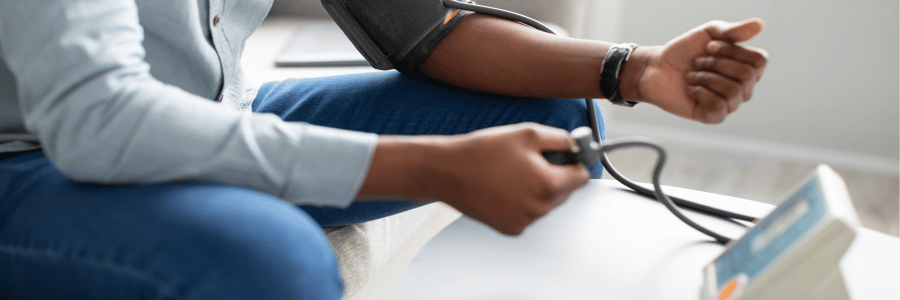What to do if Your Chest Hurts?
August 3, 2022
Causes of Chest Pains
Chest pain is one of the leading reasons why people go to the emergency room. While most people worry they’re having a heart attack, a national study found that only 5.5% of all ER visits for chest pain were related to a serious problem. There are four major causes of chest pain:
Heart-related Causes
Heart issues can involve many things that can cause pain but may not be immediately dangerous. Here are some pain-inducing heart problems:
- Heart attack involves the blockage of blood flow to the heart. It is often painful and requires immediate medical attention.
- Angina is usually caused by blocked blood vessels. If you are being treated for angina, you probably recognize its pain. You should go to the hospital immediately if you feel unexpected chest pain.
- Pericarditis is an inflammation of the membrane around the heart. It can be caused by an infection or a heart attack.
- Myocarditis is an inflamed heart muscle caused by a viral infection. Mild cases usually go away on their own. Severe cases may require medication.
- Cardiomyopathy is a chronic heart muscle disease that can result in breathlessness and bloating.
Gastrointestinal Causes
Stomach or digestive issues can cause chest pain. Some common types include:
- Acid reflux or heartburn occurs when stomach acid backs up into your esophagus. In milder cases, it can be treated with over-the-counter medications. More serious cases require a doctor’s care.
- Dysphagia or swallowing problems make it difficult for people to swallow foods or liquids. Mild cases are uncomfortable but usually not life-threatening.
- Gallstones are hardened deposits of digestive fluid that cause pain if they block the bile ducts.
- Pancreatitis is an inflammation of the pancreas and often related to alcohol abuse.
Lung-related Causes
Sometimes chest pain is caused by lung issues:
- Pneumonia occurs when air sacs in the lungs become inflamed. It can be caused by viruses, bacteria, mold, or chemical irritation.
- Viral bronchitis is often caused by some sort of respiratory infection and typically goes away on its own.
- Pneumothorax or collapsed lung is usually caused by a serious injury that requires medical attention.
- Blood clot or pulmonary embolism occurs when a clot blocks an artery in the lung. It requires medical treatment.
Other causes
Some of these are obvious, others less so:
- Bruised or broken ribs can cause serious chest pain. Since ribs cannot be placed in a cast, medical treatment generally involves pain relief medication.
- Sore muscles caused by over-exertion can cause chest pain. In most cases, they will heal on their own.
- Compression fractures of the spine can cause pain and take several weeks or longer to heal. They typically require some medical attention.
Get the Care You Need
Get emergency help if you think you may be having a heart attack – or your chest pain is new, unexplained, or lasts more than a few minutes. If you periodically experience chest pain, you should discuss it with your doctor. If you do not have a doctor, Grady can help. If you need a primary care physician, book your appointment online at gradyhealth.org, use MyChart, or call (404) 616-1000. We’ll arrange an appointment at a Primary Care Center near you. Doctors there can treat most conditions and provide access to Grady’s unparalleled medical specialty expertise.

Advertisement


